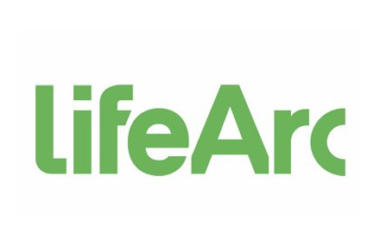The highest riser in this year’s review of the haysmacintyre / Charity Finance 250 Index is arguably its biggest success story. Medical research charity LifeArc jumps 160 places to the top of our ranking, narrowly missing promotion into the Charity 100 Index, based on three-year average income of £61.3m.
Formerly known as Medical Research Council Technology, LifeArc more than tripled its annual income to £128.9m in the financial year ending 31 March 2017, as a result of the royalty monetisation of the drug Keytruda. The drug recently received approval from the US Food and Drug Administration (FDA), the European Commission, and the National Institute for Health and Care Excellence for use in the treatment of advanced melanoma and particular forms of lung cancer.
New entrants
Elsewhere, this year’s review sees 18 new entrants. Aside from Alternative Futures, which drops down from the Charity 100 Index despite its income holding fairly steady at around £60m, the highest new entry is the Affinity Trust in position 68. It works to help people with learning disabilities to live independently, and recent years have seen it steadily grow its funding from local and NHS authorities for supported accommodation services, taking its total income from £30.7m in 2011/12 to £45.2m in 2015/16.
Meanwhile, the Katherine Martin Charitable Trust enters the Charity 250 Index in position 73, based on three-year average income of £39.5m. The Trust’s principal source of funding is dividend income from its majority shareholding in Singleton Birch, the UK’s largest independent lime supplier. The beneficiaries of the Trust, designated in Katherine Martin’s will, are Barnardo’s, the NSPCC and the RSPCA in proportions determined by the trustees.
The fourth-largest new entrant, which sits in position 77 with threeyear average income of £39.3m, is the Rhodes Trust – Public Purposes Fund. It was established to provide annual scholarships enabling students from countries around the world to undertake either second undergraduate or postgraduate degrees at the University of Oxford.
The Trust’s income has more than tripled over the last three years from £21.7m in 2013/14 to £68.3m in 2015/16. Income for 2016/17 has fallen back to £32.9m, though this will be sufficient to remain in the Charity 250 Index next year.
Much of this fluctuation can be attributed to the Trust’s £150m Campaign for the Second Century, which closed during 2016/17 having achieved its fundraising target. It set out to build an endowment that would secure the charity’s 83 scholarships in perpetuity. Over 2,500 people and institutions, including more than half of all living Rhodes Scholars, contributed towards its success.
Income requirements
Membership of both the Charity 100 and Charity 250 Indexes is reviewed every spring to take into account income fluctuations and new charities. This year, the minimum income requirement for entry into the 250 Index rose by 7 per cent, from a three-year average of £21.2m to one of £22.8m. Most exits this year are charities whose income has not kept pace with this increase, though there are two notable exceptions.
One is the Lifeline Project, which went into administration last May. The majority of the drug and alcohol abuse charity’s services have been transferred to Change, Grow, Live.
The other is Sightsavers, which has been promoted to the Charity 100 Index. The international charity, which works to treat and prevent avoidable blindness, has moved up 14 places to the penultimate position in the Charity 100 Index, based on three-year average income of £62.5m.
Risers and fallers
Aside from LifeArc, other charities that have made large leaps up the league table include the Challenge Network, up 46 places to position 29, and the Halo Trust, up 45 places to position 130.
At the Challenge Network, total income has almost doubled from £36.1m to £65.3m over the last three years, resulting in a three-year average of £51m. The increase derives largely from a comparable rise in contract income resulting from the increase in the number of young people undertaking National Citizen Service.
At the Halo Trust, meanwhile, total income rose by 60 per cent to £40.8m in the year to 31 March 2017, reflecting a £9.1m increase in UK government funding, and contracts worth £4.7m subcontracted from its sister charity the Halo Trust (USA).
The biggest faller is Rathbone Training, which drops 109 places to position 245. Total income at the youth training charity fell by 23 per cent from £23.7m to £18.3m in the year to 31 July 2016. According to the trustees, the fall reflects “continued government spending cuts … along with European funded contracts not beingreplaced and a continued reduction and restriction on the work of key partners, such as youth services and key referral agencies.”
Related articles











